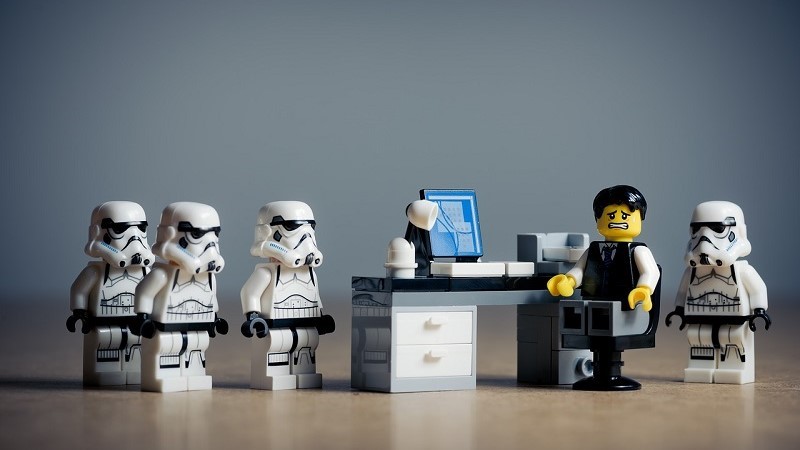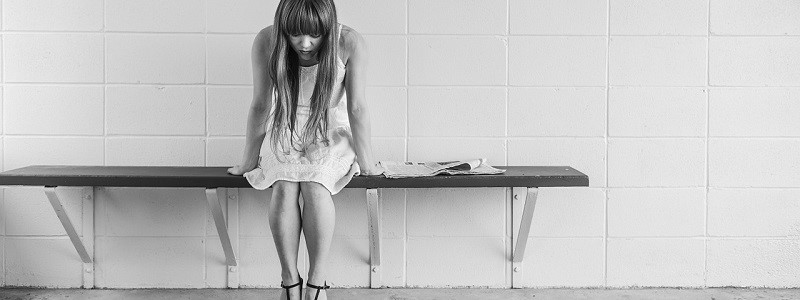

Interviews are a nervous experience for most people. Mainly because they are – by design – unnatural social interactions.
The interview format is not how human’s naturally communicated which is why we can experience mental blanks, trip over our words and a host of other things that betray our nerves.
Of course, the underlying issue is the lack of control we feel.
We don’t know what we’re going to be asked.
We have no idea what the hiring manager is looking for.
And you’re acutely aware that you have just one short hour to impress people enough to make you part of their company.
Interviews are stressful, high pressured, unnatural events that most people dislike at best. Loathe at worst.
But what if you’re someone who experiences mental health issues?
In the UK, one in four people will experience mental health issues at some point every year. Sadly, of those people only a quarter will access support.
Mental health issues can manifest themselves in a variety of ways. They can range from mild depression and low mood to enduring conditions that require ongoing support.
Although there are blanket diagnoses like ‘anxiety’ and ‘depression’ the challenges experienced can be very different from person to person.
This also means their ability to cope and what they feel comfortable with can vary too. But this doesn’t necessarily render them incapable of work. Or dealing with the stresses of work.
Under UK law you do not have to disclose your mental health issues and potential employers are not allowed to ask. Only once you have been offered a job they are allowed to ask about your health.
Be aware the employer is not allowed to withdraw their offer of employment. They have to consult your doctor or an occupational health professional to determine your suitability for the role.
If the job offer is withdrawn after disclosing your mental health issues, this may be direct discrimination.
The good news for employers is there is government guidance on how to support someone with mental health issues in the workplace. Search for the Stevenson Farmer report, Thriving at Work (2017).
But what about getting the job in the first place?

If you do experience anxiety (or other mental health issues) it’s important that put things in place in order to help you cope with situations that could heighten those feelings of anxiety. Or give you a full-blown panic attack.
Give yourself plenty of time to prepare. By plenty of time, we mean days not hours. The more time you spend researching the company or preparing your presentation the more confident you’ll feel.
Make notes on your observations and try to link them into questions. This is in addition to the more common questions you should be prepared to ask too.
The night before your interview read through what you’ve already put together – don’t go looking for new information. It’ll only confuse you.
This is a lot easier said than done but – where possible – avoid stimulants. Anxiety and stimulants don’t make the best bedfellows at the best of times. Through in a stressful situation and you can make yourself feel quite unwell.
Or you’ll crash and feel tired and drained when you need to communicate confidence and enthusiasm.
Getting to an unfamiliar part of town – or an entirely new town – is stress for anyone. More so when you have an interview and doubly so when you have anxiety.
Make sure you know exactly where you’re going. Even if that means doing a dry run the night before.
Of course this isn’t always possible. Instead make sure you have the address, printed directions and a reliable Sat Nav or route finder app.
And give yourself plenty of time to get there too.
Make sure the clothes you’re planning to wear fits you comfortably. There is no value in looking fabulous if what you’re wearing makes you feel constricted and uncomfortable.
Under stressful conditions, it can exacerbate feelings of panic you may be feeling.
Sleep is important no matter who you are, let alone when you have a big day ahead of you. Interviews are stressful, we know this. So be compassionate to yourself and get to bed at a reasonable hour.

No doubt in the minutes leading up to the interview your anxiety will be running rampant. Lots of hypothetical thoughts will be charging through your brain. They’ll be making you question why you’ve even been invited to the interview.
If it makes you feel any better, even people without anxiety or other mental health issues will have thoughts along those lines too.
When you’re offered a drink opt for a glass of water. It’s refreshing, calming and prevents headaches. It also increases brain power and provides your body with energy.
And it does it without dumping adrenaline in to your system like caffeine does. This means you’ll stay sharper for longer, helping your confidence and your ability to cope.
Focus on things outside of how you’re feeling. Chat with the receptionist. Ask your interviewer if they’re well and how their day is going.
The faster you can build a rapport with them the more at ease you’ll feel.
Interviewers are there to ask you questions. In some cases they’ll press you to see how well you know your stuff or to see how you cope under pressure.
It’s uncomfortable but not malicious. Resist the urge to react or get upset. Remember, you wouldn’t be sat there if they didn’t think you could do the job.
If you experience anxiety chances are you spend a lot of time worrying about things. The more stressful the situation the more you worry.
Try to identify which worries are rooted in the now and which are hypotheticals. As in stuff that could happen. Like not getting the job. Yes that could happen but focusing on that is as pointless as worrying about the sun not rising tomorrow.
While it could happen, it’s both unlikely and beyond your ability to influence. Keep your thoughts in the present and on what you can influence.
Interviews are an exchange of information and ideas. It’s not speed dating. Although you’d be forgiven for feeling like it is.
Take your time when answering questions. Pause to really think about what has been asked and how best to answer.
If you need to ask them to repeat the question then do so. It’s okay and you won’t be marked down for it.
Equally, it’s perfectly acceptable for you to take notes of both questions and any answers they give.
Don’t be afraid to ask your interviewer/s questions. You’re just as entitled to learn about them and the business as they are to learn about you.
In fact, it’s really important as you need to know whether or not they are a good fit for you as well as the other way around.
Ask questions about the role, your responsibilities, business objectives and where you fit into organisational structure. Finding out this information early on will help you relax
Plus, the more information you have the more at ease you’ll be making the decision when you get offered the job.
Although it’s not always possible there are things you can do to help you unwind after an interview. It’s perfectly normal to be uptight or jittery so be compassionate to yourself and recognise that it’s okay to feel that way.
It’s not always possible but if you can, give yourself a bit of time before heading back to work. Allow yourself time to compose yourself, process the interview and – where relevant – call the recruiter to let them know how you think you did.
It’s also a good opportunity to reflect on your answers.
Take a moment to pat yourself on the back, you survived the interview. No matter how well you think you did, you still got through it and that’s an achievement.
The result of the interview is something for another day. For now, congratulate yourself for turning up and getting through it.
Whatever your circumstances, if you’re an engineering or technical professional looking for your next role in the aerospace or defence industries we want to hear from you.
Upload your CV today or search our available roles by clicking here.